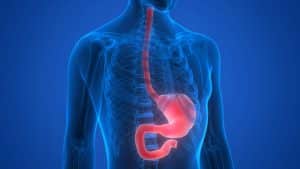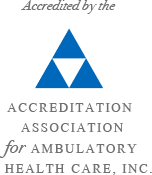What Is Esophageal Dilation?
 An esophageal dilation is performed to assist a patient who has difficulty swallowing due to an abnormal narrowing within the esophagus. The narrowing itself is called a stricture. It can be caused by a wide range of conditions.
An esophageal dilation is performed to assist a patient who has difficulty swallowing due to an abnormal narrowing within the esophagus. The narrowing itself is called a stricture. It can be caused by a wide range of conditions.
Why Would You Need Esophageal Dilation?
Narrowing of the esophagus may make it difficult for you to eat or perform other tasks such as talking or drinking. Over time, this can become uncomfortable and may even enhance your risk of choking. Esophageal dilation helps restore the sufferer’s quality of life.
What Are Common Causes of Strictures?
Many strictures are caused by an abnormal accumulation of fibrous tissue or collagen, the protein responsible for giving skin and connective tissue its flexibility. Strictures can also be a secondary symptom caused by direct esophageal trauma or a variety of other health concerns.
The most common cause of strictures is gastrointestinal reflux disease (GERD), also known as heartburn. Strictures can develop over time due to contact between sensitive esophageal tissue and stomach contents, especially digestive acid, that enters the throat due to GERD.
Some other illnesses associated with strictures include:
- Achalasia
- Eosinophilic Esophagitis
- Esophageal Cancer
- Jackhammer Esophagus
Esophageal dilation does not cure any of the underlying conditions listed above. However, it may lead to long-term relief of symptoms directly related to the strictures.
Symptoms of Strictures
The main symptom associated with a need for esophageal dilation is difficulty swallowing. Food may become “trapped” in and around abnormalities in the throat.
After the esophageal dilation procedure, patients may experience some bleeding or aspiration – that is, the breathing of foreign objects into the airway, such as food or drink.
Serious complications are very rare, and dilation is safe enough to be performed as an outpatient procedure. Some rare, severe symptoms may arise, requiring immediate medical attention. These include fever, difficulty breathing, chest pain, or abnormal bowel movements.
Benefits of Esophageal Dilation
Performed correctly by an expert, esophageal dilation can cause near-immediate relief of the swallowing difficulties caused by strictures. In many cases, this relief can last for months, years, or even permanently.
Sometimes, when an underlying condition is continuing to develop, it may be necessary to have a follow-up esophageal dilation procedure performed in the future to maintain the desired result. It’s important to continue monitoring your condition with your doctor’s help.
Treatment Options
Three different methods are commonly used for performing an esophageal dilation:
Weighted Bougie
This dilator can be filled with mercury or tungsten and uses a push-type action to achieve dilation rapidly and safely.
Wire-Guided
For added precision, this type of dilator uses a special guide wire that is inserted first. The dilator is inserted afterwards.
Balloon
Diagnostic imagery is used to precisely locate the point of a structure and insert the dilator. Then, the balloon is inflated.
If you are struggling with problems swallowing related to a stricture, esophageal dilation can help. To get the best results, the procedure must be performed by a trusted, experienced expert.
To find out more or get started, contact Gramercy Park Digestive Center today.


